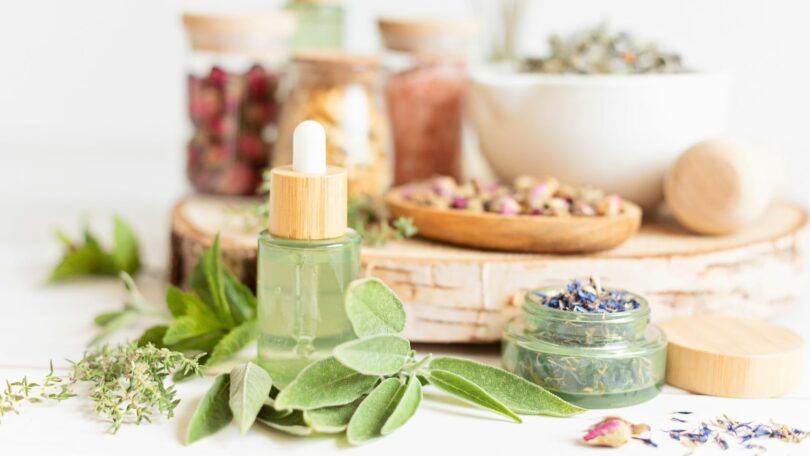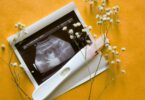Feeling overwhelmed by the countless medical options to grow your family?
Natural medicine might just be the supportive ally you need to prepare your body and mind for the path to parenthood. In this article, we explore how natural approaches can enhance your fertility and why integrating these gentle methods into your daily life is well worth considering.
Why Consider Natural Medicine to Support Your Fertility Journey?
Natural medicine takes a holistic approach, aiming to balance body, mind, and spirit. When it comes to a sensitive subject like fertility, this can be invaluable for strengthening the body while alleviating emotional stress. Unlike conventional medicine, which often focuses on treating symptoms, natural medicine seeks to address the underlying causes of fertility challenges. Here are some natural therapies that are often used to complement and support fertility and fertility treatment.
Acupuncture: Small Needles, Big Impact
When it comes to fertility care, acupuncture stands out as one of the most trusted natural approaches—and for good reason. This ancient practice does more than just relax the body; it works wonders beneath the surface.
Research shows that acupuncture can boost blood flow to the uterus, regulate hormonal balance, and ease the stress that often accompanies fertility challenges. The result? Many women leave their sessions feeling not only calmer but also more optimistic—two powerful factors that can enhance the success of fertility treatments.
But acupuncture isn’t just for women. For men, it can improve semen quality and reduce inflammation, making it a supportive choice for both partners on the path to parenthood.
One of its most impressive benefits? Acupuncture on the day of embryo transfer has been shown to significantly increase clinical pregnancy and live birth rates, offering renewed hope for those navigating IVF.
Herbal Medicine: The Power of Plants
Did you know that nature offers a treasure trove of herbs to support every phase of your menstrual cycle? During the first half, when estrogen rises and ovulation approaches, plants like basil and raspberry leaves can help balance hormones and promote egg maturation.
In the second half, after ovulation, herbs like lady’s mantle and tiger lily step in to support progesterone levels, aiding implantation and maintaining early pregnancy.
Discover how healing plants can harmonize your hormones, nurture your cycle, and empower your fertility journey—naturally. 🌿✨
However, not every plant is recommended during pregnancy. Always consult your healthcare provider before using plants!

Nutrition: Feeding Fertility
A nutrient-rich diet supports fertility by promoting the health of eggs and sperm. Antioxidant-rich foods like berries, nuts, and leafy greens protect cells, while omega-3 fatty acids reduce inflammation and support hormonal health. Targeted supplementation can help to make sure you get all the nutrients you require, so you can give your baby the best start in life.
Stress Management: Finding Your Inner Peace
The journey to parenthood can be overwhelming, with stress and anxiety often adding to the challenges. Yet, finding calm amidst the chaos is not only possible but essential for your well-being and fertility. Simple relaxation techniques can help you feel more balanced, reduce tension, and even improve your chances of success.
Info Box
- Progressive Muscle Relaxation (PMR): By gently tensing and releasing muscle groups, PMR melts away physical and emotional tension. It has been shown to lower stress, anxiety, and depression, giving your fertility a much-needed boost.
- Deep Breathing and Mindfulness: Pausing for slow, steady breaths or a mindful moment can work wonders to ease anxiety and bring emotional balance—especially during fertility treatments.
By the way, relaxation techniques can also be beneficial during pregnancy, helping to enhance mental well-being, shorten labour, and increase the chances of a natural birth. 💕
Homeopathy and „Schuessler“ Cell Salts: Gentle Support for Fertility
Based on the principles of Samuel Hahnemann, homeopathy operates on the idea that “like cures like.” Remedies are prepared through potentization (dilution and succussion) and are available as globules, drops, or tablets. They are often used to address infertility and hormonal imbalances, offering a personalized and gentle path to healing.
Dr. Wilhelm Heinrich Schueßler developed twelve mineral salts, some of which are particularly beneficial for fertility:
- No. 1 (Calcium fluoratum): Supports uterine elasticity, strengthens uterine ligaments, and reduces the risk of miscarriage by tonifying spleen-Qi.
- No. 11 (Silicea): Enhances embryo implantation, supports early pregnancy, and promotes warmth and vitality in the uterus.
- No. 7 (Magnesium phosphoricum): Calms the mind, reduces emotional tension, and harmonizes liver-Qi, creating a relaxed environment for conception.
Aromatherapy: Harnessing the Power of Essential Oils
Essential oils can positively influence the hormonal system and provide emotional support. Applied through abdominal massages or hand and foot treatments, they offer both physical and mental benefits:
- Clary Sage Oil: Elevates estrogen and progesterone levels.
- Geranium Oil: Balances female and male hormones, reduces anxiety, and lifts the mood.
- Vanilla Oil: Promotes calmness and a sense of comfort during the challenging fertility journey.
For best results, use high-quality oils and consult an expert for safe application methods.
A Personal Path to Fertility
Natural medicine offers a wealth of options to gently support your fertility journey. Whether you choose acupuncture, herbal remedies, aromatherapy, or homeopathic treatments, the key is to find an approach that resonates with you and strengthens you holistically. Share your experiences with us and inspire others on their path! Together, we can embrace new possibilities and trust in the wisdom of nature. 💚
Sources:
Abera, M., Hanlon, C., Daniel, B., Tesfaye, M., Workicho, A., Girma, T., Wibaek, R., Andersen, G., , F., Filteau, S., & Wells, J. (2024). Effects of relaxation interventions during pregnancy on maternal mental health, and pregnancy and newborn outcomes: A systematic review and meta-analysis. PLOS ONE, 19. https://doi.org/10.1371/journal.pone.0278432.
Budihastuti UR, Murti B, Prakosa T, Nurwati I, Laqif A, Melinawati E, Hadi C, Susanto L, Sukmawati M, Prasetya H, Wijayanti AS, Ahmad MF. Effect of electroacupuncture on total motile sperm count and sperm motility. J Public Health Res. 2024 Sep 3;13(3):22799036241272394. doi: 10.1177/22799036241272394. PMID: 39234212; PMCID: PMC11372768.
Daniele, C., Pittler, M., & Ernst, E. (2005). Vitex agnus castus. Drug Safety, 28, 319-332. https://doi.org/10.2165/00002018-200528040-00004.
Hossein-Rashidi, B., & Nemati, M. (2017). Effects of Vitex agnus-castus extract on the secretory function of pituitary-gonadal axis and pregnancy rate in patients with premature ovarian aging (POA). Journal of Herbal Medicine, 10, 24-30. https://doi.org/10.1016/J.HERMED.2017.10.003.
https://www.petrakamb.ch/docs/201609-fruchtbarkeit.pdf
Kıyak, S., & Koçoğlu-Tanyer, D. (2021). Effectiveness of progressive muscle relaxation and laughter therapy on mental health and treatment outcomes in women undergoing in vitro fertilization: A randomized controlled trial.. Research in nursing & health. https://doi.org/10.1002/nur.22187.
Peng X, Wu B, Zhou S, Xu Y, Ogihara A, Nishimura S, Jin Q. Integrating East Asian Traditional Medicine into Assisted Reproductive Technology: A Systematic Review and Meta-Analysis. Altern Ther Health Med. 2024 Nov 18:AT11418. Epub ahead of print. PMID: 39565705.
Raad, G., Tanios, J., Azoury, J., Daher, A., Fakih, C., & Bakos, H. (2020). Neurophysiology of cognitive behavioural therapy, deep breathing and progressive muscle relaxation used in conjunction with ART treatments: a narrative review.. Human reproduction update. https://doi.org/10.1093/humupd/dmaa048.
van Die MD, Burger HG, Teede HJ, Bone KM. Vitex agnus-castus extracts for female reproductive disorders: a systematic review of clinical trials. Planta Med. 2013 May;79(7):562-75. doi: 10.1055/s-0032-1327831. Epub 2012 Nov 7. PMID: 23136064.








